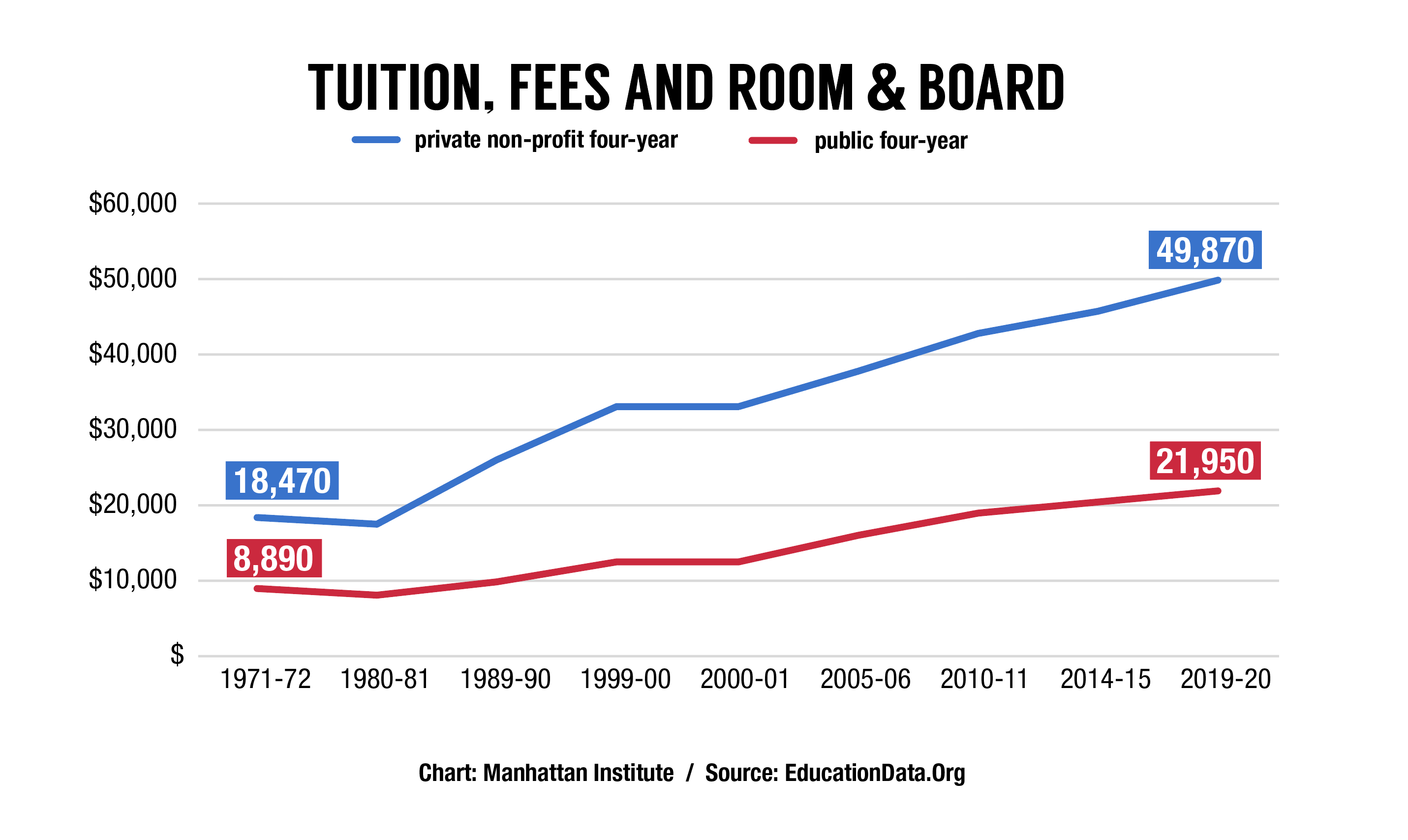
The cost of education has been rising for decades. The high price makes college increasingly out of reach for many middle class families. But trends in the labor market mean a college degree is often necessary for a middle class life. Many families feel they can't not afford to send their children to college—no matter the price.
Now COVID-19 threatens to disrupt America's higher education. Distance learning has become the norm this spring. On the one hand it may reduce the stigma of online degrees, on the other it helps students appreciate the value of in person education. If the virus drags on and colleges don't reopen this fall odds are many smaller schools will close. Many families will balk at paying $50,000 for web classes.
The long term impacts are unknown. The industry went into the crisis ripe for disruption. The end result could mean a smaller, more centralized, elitist system that is even more out of reach. Or it could mean universities explore hybrid models that leverage both technology and in-person learning. This would be an educational experience more tailored to student's learning and financial needs.
No doubt, there will be some destruction, but the final outcome will depend on how long closures last and how fast colleges and universities can adapt.
Allison Schrager is a senior fellow at the Manhattan Institute. Follow her on Twitter here.
Interested in real economic insights? Want to stay ahead of the competition? Each weekday morning, e21 delivers a short email that includes e21 exclusive commentaries and the latest market news and updates from Washington. Sign up for the e21 Morning eBrief.
Photo by Tashi-Delek/iStock
